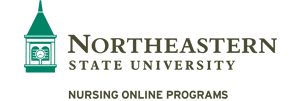Administering consistent, high-quality patient care requires access to vast fields of data. However, because the technology that collects and houses this data is constantly changing, it has become increasingly difficult for clinical staff to stay up to date on the systems and use them efficiently.
Nursing informatics helps with this. It is a growing nursing specialty designed to bridge the gap between information technology (IT) and clinical care departments. Nurses who specialize in informatics have a breadth of clinical expertise and an understanding of the latest information systems and processes.
How Has Healthcare IT Evolved?
Since the introduction of electronic health records (EHRs), access to accumulated data for patients and providers alike has many benefits, like the expansion of healthcare IT systems. Today, many “smart” technologies — and such as automated IV pumps, clinical decision support tools and barcode scanners for medication administration — are connected to the EHR, updating patient records in real-time and notifying clinical employees of critical alerts.
In addition, the introduction of new software programs has become commonplace, as has the use of mobile workstations to house the technology and other peripheral gear. As care relies increasingly on technology, informatics nurses must have a comprehensive knowledge of these systems and devices. They must routinely monitor the technology and stay abreast of emerging security threats and system updates. Informatics nurses fulfill a critical function by upholding strict privacy and security protections.
However, the responsibilities of informatics nurses encompass much more than “technical support.” As the Oncology Nursing Society (ONS) says, informatics nurses “speak two languages — technology and healthcare — and focus specifically on developing strategies for health IT procurement, implementation, maintenance and optimization in collaboration with other clinical and operational leaders.”
What Happens to Improperly Managed Healthcare Data?
Nursing informatics has the potential to streamline clinical workflows, strengthen patient engagement and satisfaction, protect patient data and improve outcomes. While collecting and exchanging information can enhance collaboration among the care team and reduce medication errors, mismanaged HIT systems are problematic.
Healthcare facilities without dedicated staff to manage and secure their data systems are susceptible to breaches. In 2021 alone, says Fierce Healthcare, cybersecurity breaches hit an all-time high, affecting 45 million individuals. At an organizational level, data breaches are incredibly costly. Facilities are vulnerable to breaches when their systems are not maintained, or employees do not use the technology appropriately. In some instances, a breach can impact the safe delivery of care, especially if data integrity is compromised or it becomes partially inaccessible. A loss of public trust often occurs, too.
How Do Nurses Prepare for a Nursing Informatics Career?
Typically, nurses interested in pursuing a career in nursing informatics require graduate-level education, especially as the complexity of health information systems intensifies. According to a 2020 workforce survey by Healthcare Information and Management Systems Society (HIMSS), 66% of respondents had a master’s degree, which helps establish credibility in the field and positions them for certification and leadership roles.
Northeastern State University’s online Registered Nurse (RN) to Master of Science in Nursing (MSN) in Nursing Informatics prepares graduates to enter the dynamic and growing healthcare technology and data management field. The ACEN-accredited program teaches students about the leading information management practices and how to conduct employee training, design secure modern data systems and shape targeted IT policies to support efficient care delivery.
As data continues to guide patient care, institutions need professionals who can safely and securely manage large swaths of information. Nurses specializing in informatics understand healthcare’s IT challenges and the impact on frontline workers. Their contributions can streamline clinical workflows, advance public health policy and improve patient outcomes.
Learn more about Northeastern State University’s online MSN in Nursing Informatics program.


